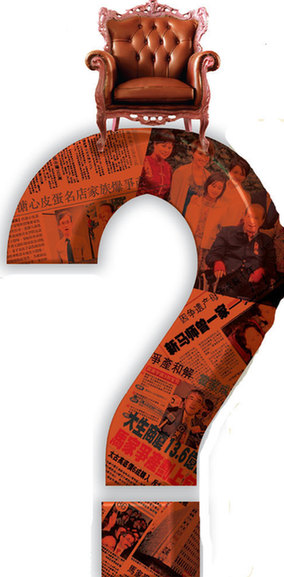All in the family
Updated: 2015-04-10 08:55
By Luo Weiteng(HK Edition)
|
||||||||
Succession planning can be a real headache, as many self-made business bosses now realize, but expert help is at hand. Luo Weiteng reports.
Spring Festival Eve this year marked a sad first for Li Ge, the middle-aged owner of a taxi company in Sichuan province. It was the first time Li failed to get all his family members together around the festive dinner table.
His mother, the founder of the firm, died of breast cancer 10 months previously and circumstances saw his sister subsequently cut off all ties with him. Their absence made the reunion dinner somewhat lonely.
While going through the belongings of his deceased mother, Li found under her pillow a will that she somehow did not present to anyone during her last days.
That written will made Li the heir to the company and left five percent of company shares each to his brother and sister, a fact that sparked a bitter months-long family battle that ended with the siblings falling out.
Starting and growing a business usually involves a fair amount of sweat and sacrifice. Many business founders on the mainland are reaching an age where they want to pass on to heirs what they have built amid the economic boom of the past few decades.
But succession planning, fraught with cultural complexities on the mainland, can be a difficult and tricky process, said Ringo Choi, Hong Kong-based Asia-Pacific IPO leader at Ernst & Young.
Yet the hard fact is that only 25 percent of mainland business founders take succession planning into account. When it comes to putting their plans into action, their numbers fall to as low as six percent, said Kitty Chung, Hong Kong-based assurance and business advisory services partner at PricewaterhouseCoopers.
Having devoted a good chunk of her life to building a business from scratch, Li's mother, like many business founders, viewed the company as the largest asset she owned.
Yet she procrastinated when it came to succession planning, if she bothered to do it at all, because she never expected to fully retire or, like many people, had not come to terms with her own mortality.
Life after death
Untimely death is not rare among workaholic company founders in the eastern coastal cities, said Lee Woon Shiu, Singapore-based managing director and head of wealth planning at Bank of Singapore.
Many middle-aged entrepreneurs are reluctant to face the fact that they eventually have to hand over the reins if their companies are to go on without them, Lee noted from experience.
He recalled a business owner in Zhejiang province who, ironically, met an early death soon after showing a glimmer of interest in succession planning - leaving a mess of succession issues to their families and other people concerned to sort out.
Unlike large corporations, medium and small businesses without solid succession plans often fail to weather the storm when the owner retires, becomes incapacitated or dies.
"As the Chinese saying goes, founders rest in heaven, money is parked in banks, whereas children confront each other in court," said Lee. "That somewhat depicts what is going on in many mainland second- and third-tier cities."
"More importantly, without a well-designed succession plan, the Zhejiang business owner's fortune evaporated due to various hefty tax bills," noted Lee.
"A succession plan can largely help ensure the orderly transfer of a business from current owners and founders to the next generation."
In October last year, mainland leaders began talking about the need to amend the inheritance law to make it catch up with reality.
Even though a long-mooted plan to introduce an inheritance tax, with rates expected to touch a whopping 50 percent as in many developed countries, still looks far from being put into action, Lee has seen a "marked increase" in business owners coming to him for advice on succession planning.

 Shanghai auto show kicks off
Shanghai auto show kicks off
 Annual Tweed Run held in central London
Annual Tweed Run held in central London
 Wood sculptures discovered inside cliffside cave in Chongqing
Wood sculptures discovered inside cliffside cave in Chongqing
 Antiriot device earns national patent for Jilin farmer
Antiriot device earns national patent for Jilin farmer
 7 trends that will shape China's supply chain
7 trends that will shape China's supply chain
 Girls celebrate adulthood in NW China
Girls celebrate adulthood in NW China
 Couple linked by a stick
Couple linked by a stick
 Natural History Museum opens in Shanghai
Natural History Museum opens in Shanghai
Most Viewed
Editor's Picks

|

|

|

|

|

|
Today's Top News
China, Pakistan elevate relations, commit to long-lasting friendship
'Belt-Road' to exchange goodwill with trade
Swarm of Chinese applications deplete US investor visas
AIIB looks to be efficient and 'green'
Bridging cultures with laughter
and song
Central bank cuts ratio for reserves
China's real estate market is a key global contributor: Conference
Envoy: Many benefits to Xi's visit
US Weekly

|

|








